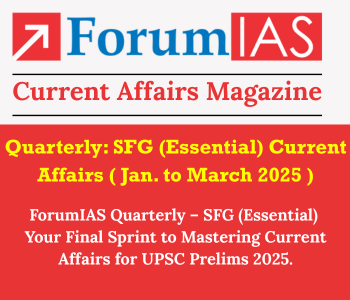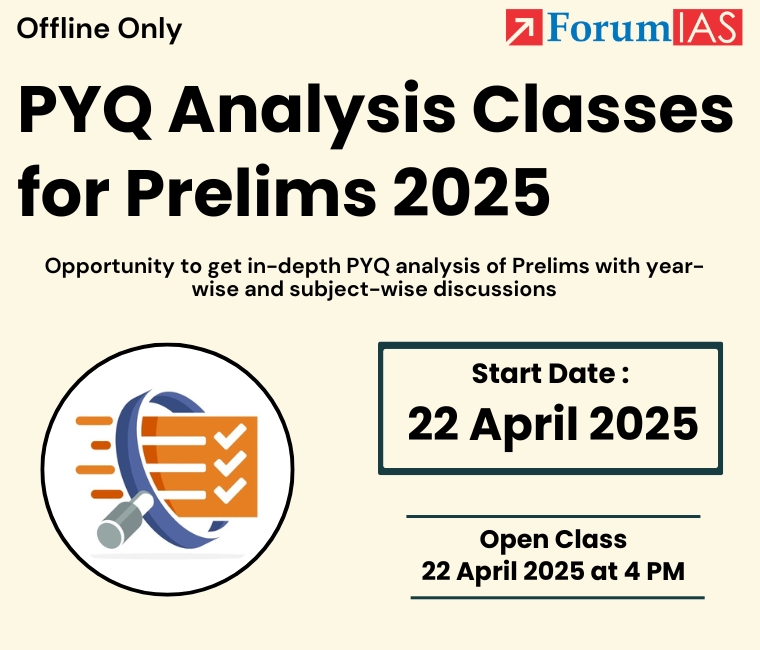By Vibhor Aggarwal Rank 71 CSE 2018
Hello everyone, I am Vibhor Aggarwal. I have secured Rank 71 in the Civil Services Examination 2018. This was my second attempt. My optional is Political Science. Like many of you, I started my preparation by moving to Delhi. In my first attempt, I was not able to do well in the Mains. For GS, this time I joined ForumIAS MGP and the Essay Classes, after my roommate who was a student of CGP Program recommended it to me.
I was at ForumIAS Center a few days back where I was asked to share my Political Science Strategy by some aspirants who were planning to write CSE 2019 and CSE 2020. I am sharing what worked for me, but it may or may not work for you, so please adopt the strategy accordingly.
In my first attempt, I missed mains cut-off majorly because of PSIR (Pol Science and International Relations), having received 211 marks which was an extremely poor score. I will be discussing a bit on what I prepared in my first attempt and the mistakes I made.
My Very first attempt
In my first attempt, I had attended Shubhra Ranjan mam’s classes. I found them pretty informative and to the point as per UPSC syllabus. Also, these classes helped me to form informed perspectives on many issues going on at that time, thus helping me in developing an overall aptitude for the preparation. Although I did feel that the overall organization of classes in terms of timely syllabus completion could be improved. A lot of topics were left out and their handouts were given. Nonetheless, classes were an overall thumbs up.
After the classes got over, I came back home and joined the PSIR test series having sectional tests. The tests also helped me a lot since I was able to complete the syllabus of first 3 sections on time and also went through regular answer writing practice. The last section was left because of prelims preparation. These tests also helped me to maintain a strict time table for General Studies as well. Although I felt that copy checking quality could improve, nonetheless, the test series was very helpful overall.
However, it was after prelims that I did a series of mistakes which led to such a poor score, despite such a good headstart. I will discuss these mistakes briefly.
The Mistakes I made in the first attempt
A sense of complacency and over-confidence: Because of good initial preparation, I came under the impression that my PSIR preparation is very robust and up to the mark.
Lesser time to optional: Not having done any coaching or any regular answer writing in GS, I was more worried about it and hence gave more time to it. I have observed that marks remain proportional to the efforts put into that paper in both my attempts.
Frog in the well syndrome: I was studying at my home. That was however not the actual problem. I never tried to gauge the preparation of others, what people generally did, what level of answers they were writing etc. Thus I never improved, while others do so by a large amount in these 4 months.
Poor answer writing practice: I never did daily answer-writing or solved previous year questions. All I wrote was answers in the tests and never even compared them with good answers of toppers of that test. I also never saw answer booklets of previous year toppers.
Poor revisions: I was confident that the concepts are ingrained into my mind and hence was not bothered much about last minute revisions. I never even had the whiff that people were revising the entire syllabus the day before the actual exam, which I spent relaxing.
Things I learned from that failure
It was thus no surprise that I had performed as poorly as I actually did. In Paper-1 owing to mam’s excellent teaching of Section-1, I scored 123 marks. However, in Paper-2, I could manage only 88 (getting such low marks in paper-2 led me to commit yet another mistake which people very often do, but I will talk about it later in this post).
Thus, I tried a series of things, which I felt I had missed in my first attempt as well what I could gather from the strategy of toppers. When it comes to the strategy of toppers, I have much to thank Pooja Ranawat mam (AIR-258, CSE-2017), whose blog became the base of my preparation in those 4 months after prelims- https://poojaranawat.wordpress.com/2018/06/05/political-science_ideal-vs-real-approach/. Although I could not implement it 100%, I feel the maximum you can take from her blog, the maximum your marks will be.
Solve previous year questions: These are very important to cover for optional. Many questions from previous years get repeated. Moreover, solving these questions gives you a very good practice. This time I solved all questions verbally from the year 2000 till now and tried to write as many questions as I could. Also, I missed something in this attempt which I had decided to implement in the next. Try to make notes of rough layout of your answer and its flow and keep revising it. This will help you to improve your answer’s presentation with each iteration of revision and save your time of thinking of the answer again and again.
Make crisp notes for quick revision: I had never bothered to make crisp notes out of mam’s notes or any other source I was following in my first attempt. However, this was something which most of the people I talked to were doing. While I started making short notes in previous toppers’ footsteps, there were various benefits of the same that I observed. First, short notes help you in quick revisions multiple times. This ensures that you ingrain the concepts and memorize them to reproduce at your will. Second, it helps in last minute revision of the vast syllabus. Third, reading crisp information multiple times ensures that you can do inter-linkages of concepts which is essentiality of this UPSC. I will touch upon inter-linkages now.
I was very impatient in making short notes. Fortunately, there were some basic short notes of Tushar Gupta sir (CSE-2017 AIR-113) available online (https://www.evernote.com/pub/ch12b1024/PSIR#st=p&n=8e6a834d-d04e-4f04-a726-4b78e4075366). I took these notes as a basic framework and built up my notes on them. Moreover, these notes had some excellent information given in Paper-2, which helped me provide with new fodder material and enhanced my concepts.
Make inter-linkages of concepts: Although mam’s notes are limited in content, they do have all the necessary information albeit scattered at different places sometimes. Thus, it becomes imperative to have all concepts at fingertips and make their use liberally even if a direct question is not asked on them. Ex. if a question on religion in politics is asked in IGP section, you can invoke F.W. Riggs’ ‘prismatic societies’ and their feature of ‘polycommunalism’ to make a stronger impression. This also shows your depth of understanding. Similarly, in the topic ‘Democracy’ of Paper-1, you can invoke Joseph Stiglitz’s concept of ‘democratic deficit’ from Paper-2.
Tip: try to invoke examples from Section-2 in Section-1 and theory concepts from Section-1 into Section-2 questions. This really boosts up your marks.
Focus on scholar names and book names: This is very important for PSIR optional, since quoting names of scholars and their books give a scholarly touch to your answer and impresses the examiner. While I ignored this in my first attempt, I put very special emphasis on this in my second attempt. I had made separate A4 sheet notes for this to ensure that I revise them multiple times and learn them by heart. I also took special care to learn various quotes given in mam notes as well as search a few of them online for each topic. Starting your answer with a quote or ending with it gives a special touch to your answers.
Daily answer writing: This is very essential since whatever you may read or prepare, you have to ultimately put it on the paper. Answer writing is specifically very important for PSIR since here paragraphs are the preferred mode of writing the answers and this requires good writing skills as well as presentation skills. The flow of answer needs to be maintained and the entire concept needs to be explained in minimal words to ensure that the word limit is adhered to.
I also referred to toppers’ answers both past years as well as good answers from the test series. This helped me gauge my answer writing level as well as helped to accommodate good pointers and answer writing skills from the answers of others.
The strategy I followed thereafter
These are broadly the areas on which I worked in this attempt and this did reflect in my marks improvement. Still, while I was satisfied with my Paper-1 preparation and broadly Paper-2 Section-1 preparation, my Paper-2 Section-2 (India’s foreign relations) preparation was not upto the mark which I realized as soon as I finished my paper. This is also reflected in my marks (157 in paper-1 and 140 in paper-2). I will discuss more on this part in the section-wise strategy.
Section wise strategy and booklist
Paper-1 Section-1
1.) SR mam’s notes
2.) O.P. Gauba- Political Theory (selected chapters)
3.) O.P. Gauba- Indian Political Thought (thinkers from syllabus)
Conceptual clarity is very important for this paper. I think mam’s notes would suffice for this section. However, please ensure that you understand every concept and every line written in mam’s notes very clearly. If you have to clarify any doubt from friends, mam or from any book, please do so, but lack of clarity in this part can reflect very poorly on your marks.
Try to link scholars and concepts with each other. This will broaden your understanding and will ensure that you write multidimensional answers. Ex. Hobbes and Locke are very complimentary thinkers and mentioning one in the question of others become imperative. Similarly mentioning positive liberty and socialism in the question of negative liberty and vice versa.
Two things will improve your marks considerably. Contradictions of any scholar or any concept. There are always contradictory views in political science and should be mentioned in your answers whether asked or not. Contemporary examples to showcase that you can link the concepts with modern issues. Ex. Iran’s supreme leader is an example of Philosopher King. India’s reservation policy as affirmative action.
Paper-1 Section-2
1.) SR mam’s notes
2.) Bipin Chandra (India’s Struggle for Independence)
3.) M. Laxmikant- Polity
4.) B.L. Fadia (few selected chapters)
5.) TheHindu + VisionIAS current affairs
A large part of this section overlaps with your GS preparation. However, ensure that you link these overlapping parts with political science concepts. This will ensure that you do not write GS type answers and have a scholarly touch to your answers. Ex. Panchayat is an example of participative democracy and the Gandhian concept of ‘Oceanic circle of power’. These should be highlighted in your answers.
Another important piece of making your answer scholarly is quoting scholar names. While it is obvious for Section-1, you may miss out on writing scholars in this section. Prepare some scholar names and their books for each section. If you don’t have one, try quoting from Section-1. Ex. Montesquieu’s ‘In the Spirit of the Laws’ can be quoted when talking about separation of powers.
Finally, do not miss out on topics like social movements, party system, political economy, since they may be asked in some easy question set or may be asked as 10-marker.
Paper-2 Section-1
1.) SR mam’s notes
2.) Andrew Heywood- Global Politics (Syllabus wise chapters)
3.) Tushar Gupta sir’s notes
4.) Current affairs
Like Section-1 of paper-1, this section too needs conceptual clarity and no compromise on that front should be afforded. I felt that while very good information is written in mam’s notes, the book ‘Global Politics’ is very imperative for this section. This book covers many concepts and information which you may not find in mam’s notes.
Use contemporary examples very liberally in this section. However, they should not be a compromise on the theory part of your answer. Do mention recent trends. Ex. trans-Atlantic is security community, however, even this is not foolproof as seen from actions of President Trump. Similarly, Brexit, right-wing politics, anti-immigration should be mentioned in EU.
Do not leave the last topics of contemporary concerns, i.e. democracy, human rights, environment etc. and be prepared for the latest current affairs in them.
Finally, prepare separate notes for latest issues in global politics. Ex. North Korea crisis, Brexit, climate talks, BRI etc. These issues are bound to be asked in the exam and well-formulated answer having scholarly opinion and linkage with IR theories will make your answer very attractive. Ex. I mentioned realist opinion in North Korean crisis and how liberals will attribute peace talks to the power of globalization.
Paper-2 Section-2
1.) SR mam’s notes + SR mam’s IR current affairs
2.) Tushar Gupta sir’s notes
3.) Current affairs from TheHindu, Indian Express, Observer Research Foundation, IDSA, RSTV etc.
4.) How India Sees the World- book by Amb. Shyam Saran
This is perhaps the easiest and trickiest section of political science. The reason being that this section is either very rewarding or may bring down your marks heavily as it did in my first attempt. I had received only 88 marks in paper-2. This led me into thinking and committing a very common mistake that I randomly received these marks by maybe some frustrated examiner. While I was aware that my knowledge base in Section-1 was not good and I filled it by reading Global Politics, I remained over-confident of my knowledge in Section-2 and went through similar sources.
This section is the easiest since it majorly requires GS knowledge. Only extra information you require is the names of scholars and their statements which can be memorized easily.
This section is also the trickiest since you cannot suffice with the above strategy. The questions in a political science paper are not similar to GS questions. To correctly handle these questions, you need to have conceptual clarity on India’s foreign relations. Thus, you need to study accordingly. If you have achieved this clarity through some coaching or through some book, well and good; however I found that India’s world on RSTV is also a very good source for this clarity. Though advised by my seniors, I never paid much attention to it and regretted it after the paper.
Also, try to cover as many dimensions as possible in a question. Writing in paragraph may lead to extending even very small points. But try to avoid it. This section specifically as many dimensions to each part of the questions and thus you should try to highlight as many as possible. Though I followed it to some extent in this attempt, still I needed to improve a lot on this front too.
Given, I would have implemented the above two strategies, I am sure I could have covered 20-30 marks more in Paper-2.
Optional subject is generally the deciding factor in getting you through the selection line. Be very committed to your optional subject. Even though you feel you are good in a subject and this goes for every paper including Essay one, still put the right amount of efforts in it. It was only I had put in the required number of hours in optional that I was able to boost up my marks. Hence, treat optional with caution right from the stage of choosing it to write your final papers.
Discover more from Free UPSC IAS Preparation Syllabus and Materials For Aspirants
Subscribe to get the latest posts sent to your email.







